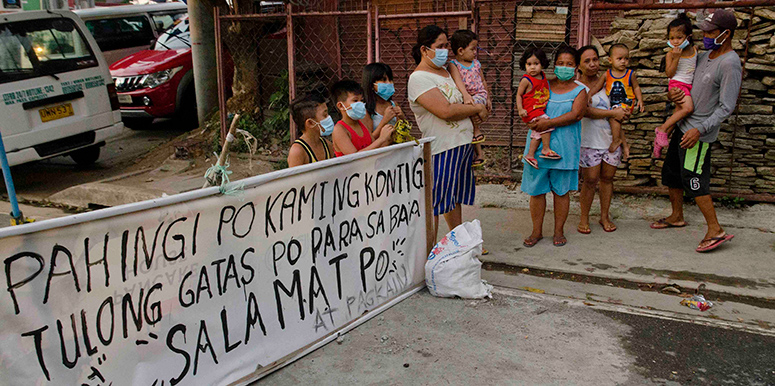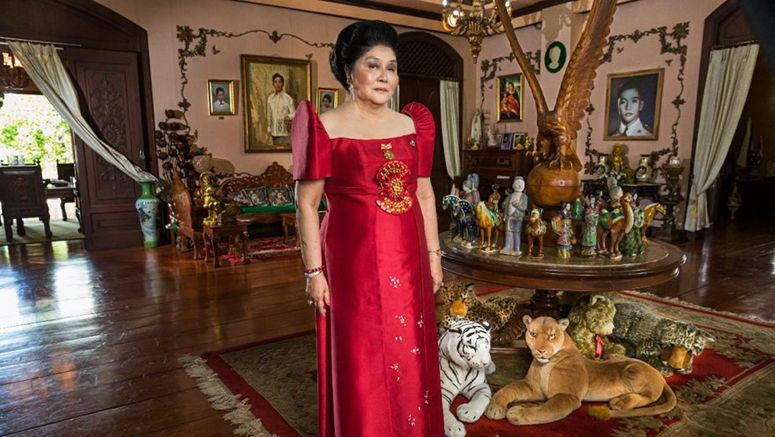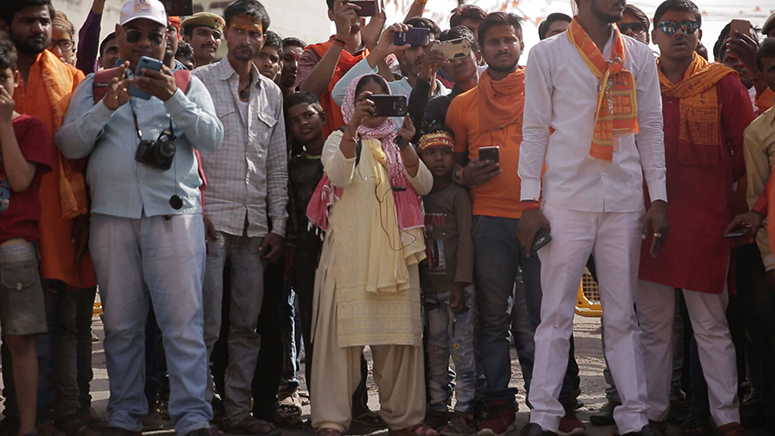Dokyu Power to the people
The film festival Dokyu Power bravely roots itself in truth, amidst the deluge of disinformation in these tumultuous times. Running until April 9, the festival’s run is book-ended by two momentous commemorations: the recent 36th Anniversary of the EDSA People Power Revolution, and Araw ng Kagitingan. These two days are emblematic of what the festival celebrates and promotes as a whole, and all of the entries are free to watch.
“We chose films that represent the burning issues of the day, the temper of the times that need our immediate attention and action,” shared Kara Magsanoc-Alikpala, president of FilDocs (Filipino Documentary Society), and one of the organizers behind Dokyu Power, in an interview conducted over e-mail.

The curated selection of films provides different facets of relevant issues faced by Filipinos at present through the lens of emerging and established filmmakers. Take Aswang (2019), directed by Alyx Arumpac, and Palanca Award-winning play Tao Po (2021), both of which delve into the extrajudicial killings carried out in the name of the war on drugs. Ditsi Carolino documents the pandemic community quarantine in Manila Lockdown: One of the Longest COVID Lockdowns in the World (2021), which was produced by Aljazeera.

The ongoing threats to human rights and lives are also rooted in long-running historical circumstances dating back to the Marcos era and beyond. See The Kingmaker (2019), which interrogates the history of Imelda Marcos; Portraits of Mosquito Press (2015), which chronicles the importance of self-publishing with a sting during the ’70s; and Augie Rivera’s musical Isang Harding Papel: A Martial Law Musical (2016).

Crucially, the festival also opens opportunities to find inspiration and solidarity in movements and struggles happening abroad. The Philippine premiere of Writing With Fire (2021), which tells the story of India’s only newspaper run by Dalit women who, despite being born into the lowest caste of Hindu society, are wielding technology and sheer ingenuity in bringing the truth to light in spite of the odds.
After all, history shows that the Philippines has also inspired fights for freedom across oceans as well.

The Cleaners (2018) investigates the shadow industry of content moderators in the United States who comb through reported text, videos, and other media on social networks, and the emotional repercussions of being faced with traumatic and violent media on an everyday basis. Even Silicon Valley tech giants outsource content moderation to overworked and underpaid workers in the Philippines, with the paradoxical situation being that this very country that supplies online content moderators also happens to be plagued by disinformation, as it serves the business interests of foreign corporations instead of the public.
Two other films having their Philippine premiere are The Silence of Others (2018), where survivors of the regime of General Francisco Franco in Spain speak up; and Collective (2019), which investigates corruption in Romania’s health system. Clearly, Filipinos are not alone in our struggles.
After all, history shows that the Philippines has also inspired fights for freedom across oceans as well. EDSA itself influenced demonstrations in Poland, the Czech Republic, China’s Tiananmen Square and the fall of the Berlin Wall. The Philippine premiere of People Power (1989) directed by Ilan Ziv reflects on the idea of mass-led revolutions through those of EDSA 1986, the ousting of dictator Augusto Pinochet and his military government in Chile, and the Palestinian intifada.
In the bigger picture, the idea of power is volatile in itself. It can oppress or uplift; silence or amplify.
“We showcase people who fought and died for their democracy. Whether or not they failed, the main characters never surrendered,” says Magsanoc-Alikpala. “Their heroism was infectious and created ripples of impact. We want the young and the first-time voters to think about these issues morning, noon and night, how they want to shape their future, and what they would be willing to do to live the Philippines they dream it to be.”
Dokyu Power draws its strength from the rich and diverse spectrum of narratives it presents, and the unflinching bravery through which these are told. In times where disinformation attempts to prescribe narratives that are meant to be accepted without question, documentary filmmakers persevere in interrogating who are telling these stories, and whose interests they should truly serve.
In the bigger picture, the idea of power is volatile in itself. It can oppress or uplift; silence or amplify. As the entire country ramps up towards the May 2022 elections, power is in flux. Will it be used to perpetuate existing social cancers, or be wrested from the few wielding it in the name of self-interest at last? The votes will tell. And our knowledge, both as individuals and a collective nation, underlies the agency of our votes. Such is the freedom that Dokyu Power encourages us to reclaim.
* * *
Dokyu Power is organized by FilDocs (Filipino Documentary Society) with DAKILA and its Active Vista Center; and is supported by Purin Pictures, MOOV by Cinema Centenario, and Rappler’s Move.PH. The festival also hosts conversations between filmmakers, media practitioners, and other bastions of truth across its six–week run. Watch the festival’s films for free here.


